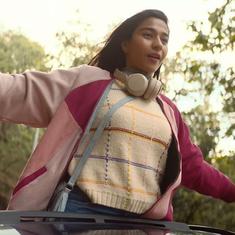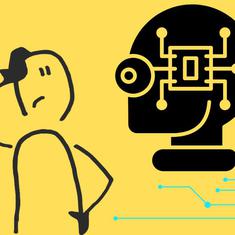Babri Masjid demolition case: Court to record statements of MM Joshi, LK Advani on July 23, 24
The special CBI court will also take former Shiv Sena MP Satish Yadav’s statement on July 22.

The special court hearing the Babri Masjid demolition case on Monday said it will record the statement of senior Bharatiya Janata Party leader Lal Krishna Advani on July 24 via video conferencing, PTI reported. Special judge SK Yadav fixed July 23 for taking the statement of Murli Manohar Joshi, another senior BJP leader, and of former Shiv Sena MP Satish Pradhan on the previous day.
Advani and Joshi, along with another BJP leader, Uma Bharti, have been accused of criminal conspiracy in the case.
In July last year, the Supreme Court had said that the trial in the Babri Masjid demolition case must be completed within nine months, that is, by April this year. However, on May 8, it extended the deadline for the trial court to pronounce its judgement till August 31.
A bench comprising Justices RF Nariman and Surya Kant said on May 8 that the Central Bureau of Investigation trial court judge, should ensure that the new deadline is not breached. The judge had on May 6 written to the Supreme Court seeking extension of time, as even recording of evidence had not yet been completed. The top court said that given the countrywide lockdown to combat the Covid-19 pandemic, the Yadav should use videoconferencing to complete the proceedings.
The Babri Masjid and Ayodhya cases
The Babri Masjid, located in Ayodhya in Uttar Pradesh, was demolished by Hindutva extremists on December 6, 1992, because it allegedly stood on land that was the birthplace of deity Ram.
On April 19, 2017, the top court had ordered day-to-day trial in the case, and said it should be concluded within two years. The court had also restored criminal conspiracy charges filed against Advani and Joshi along with Vinay Katiar, Sadhvi Ritambara and Vishnu Hari Dalmia. It restored charges against several other Hindutva leaders who had earlier been acquitted in the case.
Three other high-profile accused – Giriraj Kishore, Vishwa Hindu Parishad leader Ashok Singhal and Vishnu Hari Dalmia – died during trial and the proceedings against them were abated.
In the related Ayodhya case, the Supreme Court had on November 9 last year ruled that land at the disputed site be allotted to a trust that will oversee the construction of a Ram temple there. The bench also ruled that a separate five-acre plot be allotted in Ayodhya to Muslims for the construction of a mosque.









